Inland and Outland Canadian Spousal Sponsorship are two different categories that many people are unaware of. It’s critical to comprehend both the advantages and disadvantages of each. To make the best decision for you and your family, make sure to read all the available information.
What does “Inland & Outland Sponsorship” mean?
Two distinct sponsorships are available if you want to sponsor your spouse or partner to immigrate to Canada. Despite having many similarities, they also differ slightly in terms of their methods, advantages, and disadvantages. The sponsor must be a citizen of Canada or a permanent resident for both options.
Couples who are already living together in Canada are eligible for inland sponsorship. Additionally, the sponsored person must remain in the nation for the duration of the application procedure The couple must be categorized as being in a common-law or spousal relationship and must be living together.
Outland Sponsorship is a possibility for people whose partner lives abroad. The sponsored person need not be a resident of Canada at the time of application, unlike Inland. The sponsored person can travel abroad as often as they need to with outlandish sponsorship. For this reason, some couples opt to submit an application for outland sponsorship even if they are currently residents of Canada.
What distinguishes inland from outside sponsorship?
One of the primary benefits of inland sponsorship is the potential for the foreign partner to receive an Open Work Permit. In the interim, they are able to work for a Canadian business thanks to this. This not only gives them a chance to contribute to Canadian labour, but it also ensures their financial security. While their application is being processed, this may help the couple start over.
The couple will be able to stay together in Canada while submitting their application if they select the Inland option. In times of ambiguity or protracted waiting periods, this can be a relieving and important component. Togetherness during the stressful process of moving to Canada strengthens relationships and reduces stress.
A new initiative by Immigration, Refugees and Citizenship Canada (IRCC) intends to enable more families to be together. Family reunification is a key component of Canada’s immigration strategy.
An Open Work Permit may now be obtained by the partners, spouses, and dependents of citizens, temporary workers, permanent residents, students, and students currently residing in Canada.
Until recently, only people who were sponsored from within Canada or who were already citizens of Canada on a Temporary Residence Visa (TRV) could get open work permits. With the new rule, persons making an application from outside of Canada (via outside sponsorship) are now qualified for open work permits.
Spouses, common-law partners, conjugal partners, and children under the age of 18 who are dependent on them are all considered family members.
IRCC aims to process all spousal sponsorship applications within 12 months.
The availability of appeal rights is yet another benefit of outrageous sponsorships. If your application is rejected, you have the option of appealing the judgment. While you do not have this choice with inland sponsorship. Knowing that you have options if your sponsorship is first unsuccessful provides you relief. The validity of your relationship and your qualification for the program can be proven once more.
Can I Apply for an Outland Application While I’m in Canada?
There is no limitation that prohibits you from choosing the outrageous choice. You may choose this option even if the sponsored person is now residing in Canada. If the sponsored person needs to travel abroad, outland sponsorship might be preferred. Your spouse may depart and reenter Canada at any time during the application process or for other personal reasons. The couple’s unique circumstances and tastes ultimately determine whether they opt to apply through the outland route while residing in Canada.
Why Would I Opt for One Over Another?
To evaluate which choice is best for you and your partner, consider the sponsor and sponsored profiles, their places of residency, and the legal recognition of their marriage based on the country of residence.
In general, inland sponsorship is suitable for couples who have been legally wed in or outside of Canada, are already citizens of the nation, and have no intention of leaving while the application process is ongoing. It might also be an excellent choice for common-law partners who don’t have a legal marriage certificate but have strong proof of a devoted long-term relationship, shared housing, and over a year of relationship.
The overseas procedure can be preferable, however, if the sponsor is not currently in Canada or must travel outside of it for the application process. In this instance, the pair must still show that they have been in a serious relationship for more than a year.
The appropriate course of action requires careful consideration of all available options because every relationship is different, and every set of circumstances is different. The decision to live together with your partner needs considerable thought, and some couples seek advice from licensed immigration experts or attorneys.




